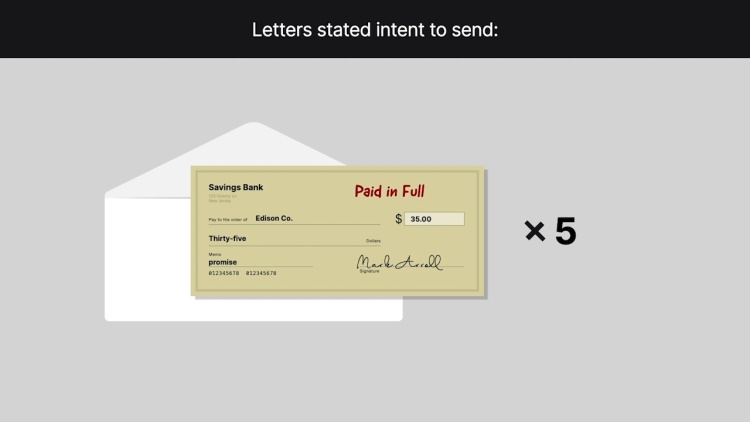Consolidated Edison Co. of New York, Inc. v. Arroll
New York City Civil Court
322 N.Y.S.2d 420 (1971)

- Written by Sara Rhee, JD
Facts
Mark Arroll (defendant) was a customer of Consolidated Edison Co. of New York (Con Edison) (plaintiff). Arroll disputed the amounts due to Con Edison in five bills for electricity consumed during the summers of 1968, 1969, and 1970. On December 6, 1969, Arroll sent a letter to the president of Con Edison. The letter disputed the amounts due for three Con Edison bills and stated that Arroll would send three checks in the amount of $35 each to the post office box Con Edison designated for payment of bills. The letter also stated that Con Edison’s cashing or retention of the checks would constitute full accord and satisfaction of Con Edison’s claims. On September 25, 1970, Arroll sent a similar letter with respect to the remaining two bills in dispute. In accordance with the letters, Arroll sent five checks in the amount of $35 each to the post office box. On each check, Arroll wrote that the check was in full payment and satisfaction for its corresponding bill. Arroll also wrote the words “paid in full” on each check and referenced either the December 6, 1969 or the September 25, 1970 letter. Con Edison replied by letter that the five bills were accurate, but did not mention the checks. Con Edison received each check and deposited them. Con Edison then brought suit against Arroll to recover the difference between the amount received and the amount billed. Arroll argued accord and satisfaction of the amount due.
Rule of Law
Issue
Holding and Reasoning (Sanders, J.)
What to do next…
Here's why 911,000 law students have relied on our case briefs:
- Written by law professors and practitioners, not other law students. 47,100 briefs, keyed to 997 casebooks. Top-notch customer support.
- The right amount of information, includes the facts, issues, rule of law, holding and reasoning, and any concurrences and dissents.
- Access in your classes, works on your mobile and tablet. Massive library of related video lessons and high quality multiple-choice questions.
- Easy to use, uniform format for every case brief. Written in plain English, not in legalese. Our briefs summarize and simplify; they don’t just repeat the court’s language.





